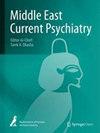Research in mental health in the Arab speaking world 1920 to 2018
IF 1.6
Q3 PSYCHIATRY
引用次数: 0
Abstract
The progressive improvement in the educational level of the Arab world has been accompanied by a surge of scientific productivity. Mental health research, especially in the last four decades, is one such endeavor. Mental health research output over almost a century, from 1920 to 2018, is reviewed. A literature review was conducted using PubMed, PsychInfo, Cochrane, and the IDRAAC search engine to identify mental health publications over the past 100 years. Trends of mental health research were explored over time with reference to country population and gross domestic product (GDP). A total of 3373 articles were retrieved. The three countries with the highest number of mental health publications in the past century are Egypt, Kingdom of Saudi Arabia (KSA), and Lebanon, representing together 41.5% of the productivity of all 22 Arab countries. The top producers also had the highest collaboration rates with other Arab countries (20%) as well as non-Arab countries. The top three publishers per capita are Lebanon, Kuwait, and Bahrain. When GDP was factored in, the top three countries are Lebanon, Palestine, and Tunisia. Most publications over the last decade (80%) were in international non-local journals. The leading subjects of research were epidemiology, mood disorders, obsessive compulsive behavior, and mental health services. Arab speaking countries have been increasing their mental health productivity over the past 100 years; however, only a handful of those countries were relatively active. Those leaders also had the highest level of Arab and international collaboration. Investing in regional and international collaborations is a solid recommendation of this review.阿拉伯语世界心理健康研究 1920 至 2018 年
在阿拉伯世界教育水平逐步提高的同时,科学生产力也突飞猛进。心理健康研究,尤其是近四十年来的心理健康研究,就是这样一种努力。本文回顾了从 1920 年到 2018 年近一个世纪的心理健康研究成果。我们使用 PubMed、PsychInfo、Cochrane 和 IDRAAC 搜索引擎进行了文献综述,以确定过去 100 年来的心理健康出版物。参考各国人口和国内生产总值(GDP),探讨了心理健康研究的发展趋势。共检索到 3373 篇文章。在过去的一个世纪中,精神健康出版物数量最多的三个国家是埃及、沙特阿拉伯王国(KSA)和黎巴嫩,共占所有 22 个阿拉伯国家生产率的 41.5%。与其他阿拉伯国家(20%)和非阿拉伯国家的合作率也最高。人均出版量排名前三位的国家是黎巴嫩、科威特和巴林。如果将 GDP 计算在内,排名前三位的国家分别是黎巴嫩、巴勒斯坦和突尼斯。过去十年中,大多数出版物(80%)发表在非本地的国际期刊上。主要的研究课题是流行病学、情绪障碍、强迫行为和心理健康服务。在过去的 100 年里,阿拉伯国家的心理健康生产力不断提高;然而,其中只有少数几个国家相对活跃。这些领先国家的阿拉伯和国际合作水平也是最高的。投资于地区和国际合作是本次审查的一项可靠建议。
本文章由计算机程序翻译,如有差异,请以英文原文为准。
求助全文
约1分钟内获得全文
求助全文
来源期刊

Middle East Current Psychiatry
Medicine-Psychiatry and Mental Health
CiteScore
3.00
自引率
0.00%
发文量
89
审稿时长
9 weeks
 求助内容:
求助内容: 应助结果提醒方式:
应助结果提醒方式:


